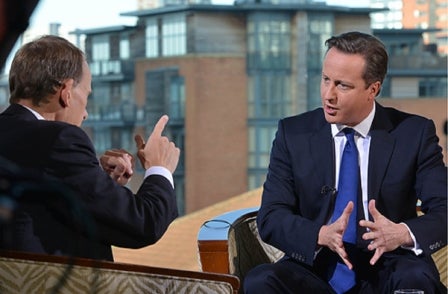
Despite voicing some "grave reservations" press owners have broadly welcomed the Tory plan for a new press regulator underpinned by a Royal Charter, published yesterday.
An Industry Implementation Group representing newspaper and magazine publishers has been working in recent months to finalise a contract-based press regulator which it has insisted is fully 'Leveson compliant'.
Chairman of the group, Trinity Mirror legal director Paul Vickers, said: "We welcome this very constructive announcement, the fruit of two months of intensive talks involving the newspaper and magazine industry and all three main political parties.
"All the framework of the new regulatory body is already in place; today’s publication of the proposed Royal Charter and Recognition Criteria is a vital development which means the work of setting it up can begin as soon as the Royal Charter is established.
"We are convinced this should be done without statute, which would raise dangerous constitutional questions."
Included in the Royal Charter plan is proposals for a regulator Recognition Panel which would be fully independent of the press and which would ultimately oversee the new system. And it proposes creating a low-cost libel arbitration arm, which could mean that those publishers who do not use it would be left open to the threat of exemplary damages.
Vickers said: "We remain opposed to exemplary damages, which are unnecessary, unjust and against European law, and we have grave reservations about the proposed arrangements for appointments to the Recognition Panel, which appear to prevent anyone with knowledge or experience of the industry at a senior level from becoming members.
"However these are issues which can be addressed over the coming days: the newspaper and magazine industry are determined to have a new, Leveson-recommended regulatory system up and running as soon as possible."
The Daily Mail, whose editor Paul Dacre is considered by many to be the most powerful national newspaper editor, today signalled its support for the Conservative plan.
In an editorial today the paper said: "David Cameron deserves much credit for coming up with a way to impose rigorous, independent self regulation – the toughest indeed since Oliver Cromwell's day – while avoiding the sledgehammer blow to freedom implicit in statutory control…
"This paper trusts that Nick Clegg and Ed Miliband will put respect for our ancient liberties above petty politics – and adopt Mr Cameron's Royal Charter as a basis for constructive talks."
However there is evidence that regional press editors are less welcoming of the Royal Charter plan. There are concerns about Tory proposals that special interest groups would be allowed to complain via the PCC for the first time and about the civil claims arbitration service.
South Wales Argus editor Kevin Ward said on Twitter: "From what I've seen the Royal Charter plan could be hugely negative for the regionals." He added that the plan could see "huge workloads for small papers as complaints increase because people see pound signs".
The Royal Charter proposal has been rejected by campaign group Hacked Off which is still insisting there needs to be a statutory solution, as proposed in the Leveson report. And it has suggested that the Conservatives have caved in to pressure from the press.
But executive director of the Society of Editors Bob Satchwell said: “Lord Justice Leveson was at pains to point out that most of the press has been found guilty of nothing, but the tough new regulatory system and the Royal Charter plan are massive changes. To suggest this is a 'surrender' to Press pressure simply shows that there are those who seem intent on neutering all of the papers.”
Chief executive of Index on Censorship Kirsty Hughes said: "The Conservatives' complex proposal contains much to recommend it, not least the suggestion of a fair, quick and inexpensive arbitration process for legal claims, and the exclusion of serving editors and members of the government from the regulatory board. There is also recognition of the importance of freedom of speech, the public interest, and the protection of sources.
"But while there is an attempt to set a very high bar for political interference, the fact that the Royal Charter is given legitimacy by the Privy Council and Parliament does mean that this cannot be described as strong self-regulation, the status which best guarantees press freedom.
" There also remains a question over exemplary damages for those who do not sign up to the regulator, and the increasingly vexed problem over what exactly constitutes a news publisher in the age of citizen journalism, blogging and social media."
Email pged@pressgazette.co.uk to point out mistakes, provide story tips or send in a letter for publication on our "Letters Page" blog
